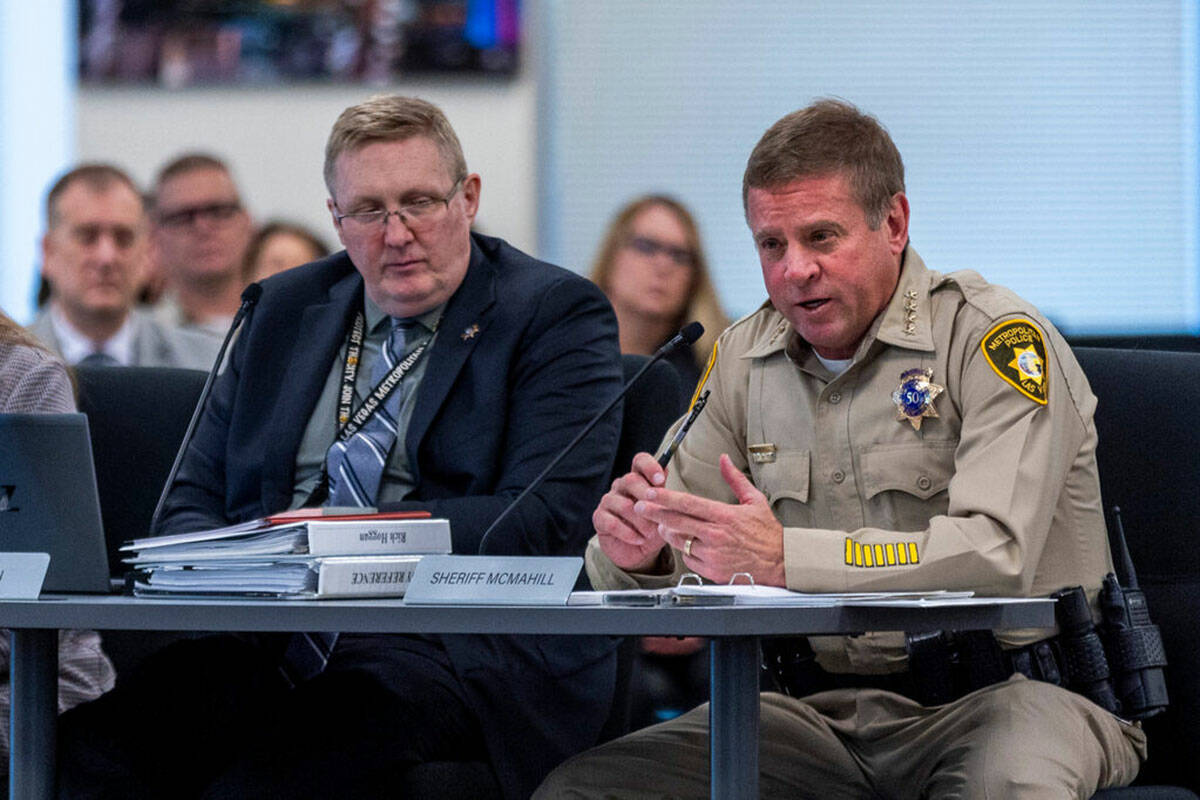Metro approves $600K in settlement payments to the Review-Journal

The committee in charge of Metropolitan Police Department finances on Thursday approved payments totaling more than $600,000 to the Las Vegas Review-Journal, settling lawsuits that resulted from the department’s attempts to hide documents in violation of the state’s public records law.
During a public meeting at police headquarters, the five members of the Metropolitan Police Committee on Fiscal Affairs voted unanimously and without comment to approve payments of $325,000 and $295,000.
Last year, in two separate decisions, the Nevada Supreme Court ruled that Metro violated the Nevada Public Records Act when it denied the Review-Journal’s requests for records pertaining to the deadly 2019 Alpine Motel fire and a 2018 police investigation into a Nevada Highway Patrol trooper.
The cases were sent back to District Court, where the Review-Journal and Metro agreed to the settlement. The payments largely cover the news organization’s legal bills for winning access to the records.
“Reimbursement for attorneys’ fees is a vitally important part of the public records law, because without it, most people could not afford to take the government and all its lawyers to court,” Review-Journal Chief Legal Officer Ben Lipman said. “Sadly, often people can’t afford it, anyway. And either way, it is a shame that governmental entities so often spend public money to fight against transparency when in the end it is taxpayers who are forced to foot the bill.”
The department repeatedly denied the Review-Journal’s requests for records in the wake of the December 2019 Alpine Motel fire in downtown Las Vegas, which killed six people and injured 13 others. The department released some records only after the newspaper filed suit.
In 2018, a Review-Journal reporter requested records related to an investigation by Metro into a Nevada Highway Patrol trooper who was alleged to have asked a confidential informant to murder or harm the trooper’s wife, but the department refused to release them.
“The public always loses when governments illegally refuse to release public records,” Review-Journal Executive Editor Glenn Cook said Thursday. “They are wrongly denied timely transparency and accountability, and then they are compelled to pay large sums of money for futile legal fights. Government agencies must follow the law.”
Contact David Wilson at dwilson@reviewjournal.com.